
- Talking the Talk
- Work With Us

Research ONS Statistics: Homeworking in the UK has more than doubled to 9.9m people

Statistics show from October to December 2019 and January to March 2022, homeworking in the UK has more than doubled from 4.7m to 9.9m people, according to the Office for National Statistics (ONS)
Published in its ‘ Homeworking in the UK – regional patterns: 2019 to 2022 ’ data-set, the ONS number-crunching also reveals increases in homeworking varied across UK regions. It says the largest percentage increase in homeworking was in Scotland (203.5%, up 544,000), and the smallest percentage increase was in Northern Ireland (56.4%, up 49,000). The ONS defines remote workers as those who say their main place of work is their own home.
What’s more, between October to December 2019 and January to March 2022, the number of non-homeworkers (those who live and non-homework in the same region) and regional commuters (those who work in a region but live in a different region) in the UK decreased by 19.7% (down 5.5 million).
The ONS did however find a decrease in the number of non-homeworkers (those who live and non-homework in the same region) and regional commuters (those who work in a region but live in a different region) varied across UK regions. It says the largest decreases were in London (30.1%, down 1.4 million), followed by the South East (21.8%, down 775,000), Scotland (21.2%, down 505,000) and the North West (20.2%, down 627,000).
The rise of home working in London has been resulted in press interest from the national media – as low office attendance rates cause concern. This is despite ministers and officials urging people back to the workplace, with fears that London’s recovery is lagging other cities because of a lack of commuters .
Implications for labour market
Despite the end of UK government guidance to work from home, says the ONS, in February 2022 more than 8 in 10 workers who had to work from home during the coronavirus pandemic said they planned to work both from home and in the workplace (hybrid work). Of those workers surveyed, 42% were planning to work “most working hours from home, and sometimes from their usual place of work”. The increase in homeworking practices has led many to consider the implications on local labour markets and consumption.
Flexible working
The ONS also looked at flexible working. Across the UK, in January to March 2022, 14.3% of people (2.8 million) who did not mainly work from home (non-homeworkers) said they worked from home at least one day in the reference week. This figure was highest in London (24.3%, 627,000) and lowest in the East Midlands (9.1%, 126,000).
View the full data set
- Homeworking in the UK – regional patterns
- Dataset | Released 11 July 2022
- Homeworking data for the UK from the Labour Force Survey in October to December 2019 and January to March 2022.
- Hybrid Working

Content Team
Work in Mind is a content platform designed to give a voice to thinkers, businesses, journalists and regulatory bodies in the field of healthy buildings.
Australian scientists say ‘simple changes’ to ventilation systems can significantly decrease transmission of COVID-19
It’s too darn hot: gmb union urges legal maximum of 25c in uk workplaces, subscribe to our newsletter.
I have read and agree to the terms & conditions
Related Posts

Report: 20-somethings experience more sick days from ill health than those in 40s

Menopause in the workplace: New guidance enforces ‘reasonable adjustment’ from employers

Office vs. remote work: Navigating the evolving landscape
Wales Institute of Social and Economic Research and Data
Homeworking in the UK: Before and During the 2020 Lockdown
In this report, Alan Felstead of Cardiff University and Darja Reuschke of the University of Southampton present new and up-to-date evidence on the scale of the shift of paid work into the home in the UK during lockdown, its impact on the mental well-being and productivity of homeworkers, and the likely prevalence of homeworking after social distancing restrictions are fully lifted. The findings are based on three online surveys of workers carried out towards the end of April, May and June 2020. Each survey questioned a representative sample of 6,000-7,000 workers.
Privacy Overview
National Statistical
News and insight from the office for national statistics, doing our homework: how we’re improving our estimates of education output through the pandemic.
- Philip Wales
- March 31, 2021

Teachers, students and parents have had a difficult year: school closures, remote instruction and the need to ‘home-school’ have all made providing lessons to students challenging. Here Philip Wales talks about how our measurement has responded to keep pace with fast-changing schools policies during the pandemic, and how the improvements we are now introducing impact on our figures.
As has been widely discussed, ONS’s estimates of the output of public services what is delivered by those services ; by weighting together how many primary and secondary school pupils are receiving education in the classroom to estimate education output in the National Accounts. Although this differs from the practice of some other countries , this approach is in line with best international standards.
However, as the pandemic struck our previous approach of counting students in the classroom couldn’t capture education output anymore: classrooms were largely empty, schools were closed, and yet teachers were still hard at work instructing students at home. Our measurement needed to adapt to include remote learners.
Initially, we used new sources such as Department for Education high frequency attendance data and information from Teacher Tapp , an innovative app that surveys teachers on what sort of work they were doing.
These sources allowed us to estimate how much remote learning was being provided . Our initial estimate was that remote learning was a partial substitute for in-school teaching: we estimated that each remote learning secondary school student was equivalent to around two-thirds of an ‘attending student’. Each remote learning primary school student was worth about 40% of an attending student – reflecting the larger role of parents in teaching younger children.
But at the time we made these estimates, we made it clear these early estimates were more likely to be revised than in normal times. Both the return to schools in September and their renewed closures in January created new measurement difficulties. To capture these events, we improved the questions we asked teachers to get more detailed information in the latter half of last year: asking directly how much material was being provided to remote learners.
We have now used these revised questions to improve our estimates of the value of remote learning for the first few months of the pandemic and to make sure we have a consistent approach throughout 2020. These estimates have reduced the value of each remote learning school student in those early weeks of the pandemic, which now rises gently through the rest of 2020 as teachers, parents and children acclimatised to the ‘new normal’.
These new education estimates have the impact of making GDP fall by 0.5 percentage points more than originally estimated in the second quarter of 2020 before recovering by 0.4 percentage points more in the third quarter.
These improved estimates paint a better, more consistent picture of the challenges faced by the education sector in the first months of the pandemic, and provide a firm basis for measurement in 2021. This will be particularly important as we start to think about how any ‘catch up’ provision might be captured in our estimates of education output in the coming months.
We will keep all of our methods and sources under review to ensure we can provide the best estimates possible of how the pandemic has affected our society and economy.
Share this post
Teaching support from the UK’s largest provider of in-school maths tuition

resources downloaded

one to one lessons

schools supported
Headteacher-Trusted Tutoring
"This is one of the most effective interventions I have come across in my 27 years of teaching."
Free CPD and leadership support
All the latest guides, articles and news to help primary, secondary and trust leaders support your staff and pupils

The Great British Homework Debate 2024 – Is It Necessary At Primary School?
Alexander athienitis.
The homework debate is never much out of the news. Should homework be banned? Is homework at primary school a waste of time? Do our children get too much homework?
Not long ago, UK-based US comedian Rob Delaney set the world alight with a tweet giving his own personal view of homework at primary school. We thought, as an organisation that provides maths homework support on a weekly basis, it was time to look at the facts around the homework debate in primary schools as well as, of course, reflecting the views of celebrities and those perhaps more qualified to offer an opinion!
Here’s how Rob Delaney kicked things off

Gary Lineker leant his support with the following soundbite:
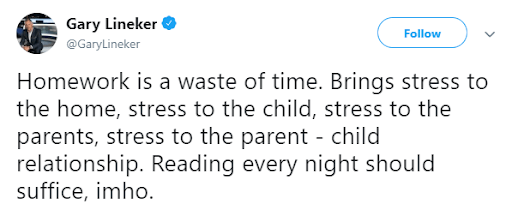
And even Piers Morgan weighed in, with his usual balance of tact and sensitivity:

A very experienced and knowledgeable Headteacher, Simon Smith, who has a well-earned following on Twitter (for someone working in education, not hosting Match of the Day) also put his neck on the line and, some might think controversially, agreed with the golden-heeled Crisp King of Leicester…
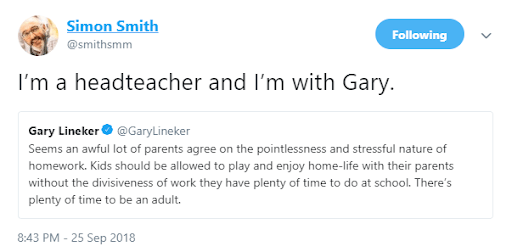
Fortunately Katharine Birbalsingh, Conservative Party Conference keynote speaker and Founding Headteacher of the Michaela School, was on hand to provide the alternative view on the importance of homework. Her op-ed piece in the Sun gave plenty of reasons why homework should not be banned.
She was informative and firm in her article stating: “Homework is essential for a child’s education because revisiting the day’s learning is what helps to make it stick.”

KS2 Maths Games and Activities Pack
A FREE downloadable games and activity pack, including 20 home learning maths activities for KS2 children to complete on their own or with a partner.
How much homework do UK primary school children get?
Sadly, there’s little data comparing how much homework primary school-aged children in the UK and across the globe complete on a weekly basis. A study of teenagers used by The Telegraph shows that American high-schoolers spend an average of 6.1 hours per week compared with 4.9 hours per week of homework each week for UK-based teens.
Up until 2012, the Department of Education recommended an hour of homework a week for primary school Key Stage 1 children (aged 4 to 7) and half an hour a day for primary school Key Stage 2 children (aged 7-11). Many primary schools still use this as a guideline.
Teachers, parents and children in many schools across the land have seen more changes of homework policy than numbers of terms in some school years.
A ‘no-homework’ policy pleases only a few; a grid of creative tasks crowd-sourced from the three teachers bothered to give their input infuriates many (parents, teachers and children alike). For some parents, no matter how much homework is set, it’s never enough; for others, even asking them to fill in their child’s reading record once a week can be a struggle due to a busy working life.
Homework is very different around the world
We’d suggest that Piers Morgan’s argument for homework in comparing the UK’s economic and social progress with China’s in recent years based on total weekly homework hours is somewhat misguided – we can’t put their emergence as the world’s (if not already, soon to be) leading superpower exclusively down to having their young people endure almost triple the number of hours spent completing homework as their Western counterparts.
Nonetheless, there’s certainly a finer balance to strike between the 14 hours a week suffered by Shanghainese school-attendees and none whatsoever. Certainly parents in the UK spend less time each week helping their children than parents in emerging economies such as India, Vietnam and Colombia (Source: Varkey Foundation Report).
Disadvantages of homework at primary school
Delaney, whose son attends a London state primary school, has made it plain that he thinks his kids get given too much homework and he’d rather have them following more active or creative pursuits: drawing or playing football. A father of four sons and a retired professional footballer Gary Linaker was quick to defend this but he also has the resources to send his children to top boarding schools which generally provide very structured homework or ‘prep’ routines.
As parents Rob and Gary are not alone. According to the 2018 Ofsted annual report on Parents Views more than a third of parents do not think homework in primary school is helpful to their children. They cite the battles and arguments it causes not to mention the specific challenges it presents to families with SEND children many of whom report serious damage to health and self-esteem as a result of too much or inappropriate homework.
It’s a truism among teachers that some types of homework tells you very little about what the child can achieve and much more about a parent’s own approach to the work. How low does your heart sink when your child comes back with a D & T project to create Stonehenge and you realise it’s either an all-nighter with glue, cardboard and crayons for you, or an uncompleted homework project for your child!

Speaking with our teacher hats on, we can tell you that homework is often cited in academic studies looking at academic progress in primary school-aged children as showing minimal to no impact.
Back on Twitter, a fellow teacher was able to weigh-in with that point:

Benefits of homework at primary school
So what are the benefits of homework at primary school? According to the Education Endowment Foundation (EEF) (the key research organisations dedicated to breaking the link between family income and educational achievement) the impact of homework at primary is low, but it also doesn’t cost much.
They put it at a “+2 months” impact against a control of doing nothing. To put this into context, 1-to-1 tuition is generally seen as a +5 months impact but it’s usually considered to be expensive.
“There is some evidence that when homework is used as a short and focused intervention it can be effective in improving students’ attainment … overall the general benefits are likely to be modest if homework is more routinely set.”
Key to the benefit you’ll see from homework is that the task is appropriate and of good quality. The quantity of homework a pupil does is not so important. In this matter Katharine Birbalsingh is on the money. Short focused tasks which relate directly to what is being taught, and which are built upon in school, are likely to be more effective than regular daily homework.
In our view it’s about consolidation. So focusing on a few times tables that you find tricky or working through questions similar to what you’ve done in class that day or week often can be beneficial. 2 hours of worksheets on a Saturday when your child could be outside having fun and making friends probably isn’t. If you really want them to be doing maths, then do some outdoor maths with them instead of homework !
At Third Space Learning we believe it’s all about balance. Give the right sort of homework and the right amount at primary school and there will be improvements, but much of it comes down to parental engagement.
One of our favourite ways to practise maths at home without it become too onerous is by using educational games. Here are our favourite fun maths games , some brilliant KS2 maths games , KS1 maths games and KS3 maths games for all maths topics and then a set of 35 times tables games which are ideal for interspersing with your regular times tables practice. And best of all, most of them require no more equipment than a pen and paper or perhaps a pack of cards.
Homework and parents
One of the key benefits cited by EEF is in regard to parental engagement. Time after time, the greatest differentiator between children who make great progress at school – and those, frankly – who don’t is due to the same factor in the same studies: parental engagement .
It is a fair assumption that if a parent is engaged in their child’s learning, they’re probably going to be the same parents who encourage and support their child when they’re completing their homework.
Whereas parents who are disengaged with their child’s school and schooling – for whatever reason (sorry, Piers, it’s rarely due to laziness), are highly unlikely to be aware of what homework gets set each week, let alone to be mucking in with making sure it gets handed in completed and on time.
We also encounter time and again, the issue of parents’ own lack of confidence in maths. A survey by Pearson found that:
- 30 percent of parents “don’t feel confident enough in their own maths skills to help their children with their primary school maths homework”
- 53 per cent insisted they struggled to understand the new maths teaching methods used in modern classrooms. Fortunately that’s what we’re here to address.
Setting the right homework at primary school can be tricky
Although we disagree with Piers, we can see what he may be driving at in terms of setting appropriate homework.

The question quickly becomes what would Piers think of as being ‘interesting’ homework, and if all four of his children would agree upon the same thing being ‘interesting’.
That’s the problem.
One would imagine Piers would find it hard enough finding one task to satisfy the interest of all of his four children – it’s almost impossible to find a task that will engage the interest of 30 or more children in their out of school hours.
Each with different emotional, behavioural and learning needs, then sprinkle in the varying levels of poverty each family suffers (be it financial or in terms of time), and you can see how it isn’t just about being a good or bad teacher – whatever that means – in regards to being able to set Morgan-approved homework tasks.
What does this mean for my child?
Ultimately, the question at the top of mind whenever a parent thinks about homework is a more general one – am I doing the best for my child?
Although the world is changing at a faster pace than ever before in human history, what’s best for children hasn’t changed that much (if at all).
One-to-one support is best, and young people benefit most from adult-child conversations where they acquire new vocabulary and language structures to form and share their thoughts and opinions.
These insights – that one-to-one support is best and that regular, structured adult-child conversations are life-changing within a child’s development – are what inspired us to create Third Space Learning.
A platform where children can engage with a community of specialist tutors in a safe, structured learning environment where they are able to engage in one-to-one conversations that enable them to progress in their learning with confidence.
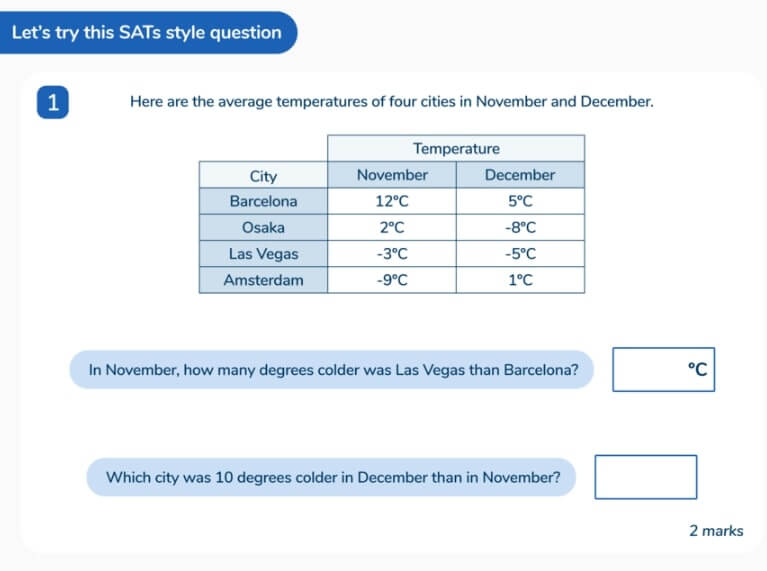
- How to help your child with their maths homework – A parents guide
- The Best Homework Hacks: 18 Tips And Tricks To Help Busy Parents Get It Done Faster!
- The 20 Most Recommended Teaching Blogs for UK Teachers and School Leaders
Do you have students who need extra support in maths? Every week Third Space Learning’s maths specialist tutors support thousands of students across hundreds of schools with weekly online 1-to-1 lessons and maths interventions designed to address learning gaps and boost progress. Since 2013 we’ve helped over 162,000 primary and secondary students become more confident, able mathematicians. Learn more or request a personalised quote for your school to speak to us about your school’s needs and how we can help.
Subsidised one to one maths tutoring from the UK’s most affordable DfE-approved one to one tutoring provider.
Related Articles
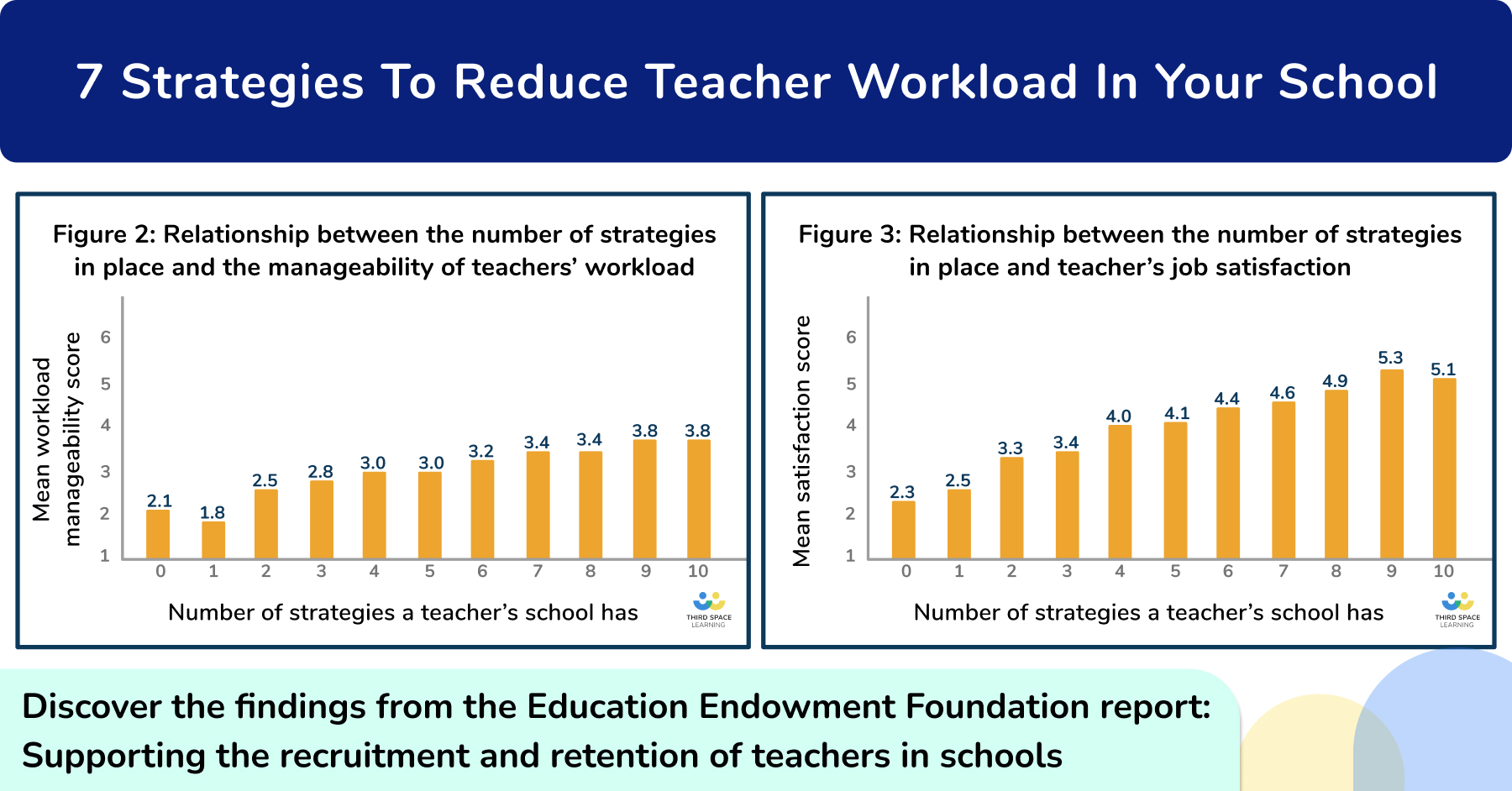
The Ultimate Guide to Effective Maths Interventions [FREE]
Find out how to plan, manage, and teach one to one (and small group) maths interventions in primary and secondary schools.
Includes a 20 point checklist of techniques to improve your one to one teaching.
Privacy Overview

Maths Learning Resources
Free for parents and fun for children! Discover a library of primary school maths worksheets, games, tips for parents, and more! Perfect for learning remotely, preparing for the 11 Plus exam, and making progress in maths.
- Key Stage 1
The Homework Debate 2021: Do Primary Schoolers Really Need Homework?

The homework debate resurfaces every year without fail. It is a popular topic with parents, primary school teachers, online tutors, and politicians alike. Should homework be banned? Is homework at primary school necessary? Do pupils receive enough education in class that homework is nothing but a waste of time? – These are all questions that you have no doubt heard before.
Is the homework debate even relevant in the context of COVID-19? As an online maths tuition service for KS1 and KS2 pupils, we believe so! Sometimes we set our students homework. We believe that this debate is more relevant now than it has ever been. Let’s discover why…

Helping Kids 'do' Mental Maths
Courses are running from June 1st – June 5th , 2021 .
In just two classes, our tutors can help your child develop fast calculation skills, applying them to all types of maths problems!
“Homework should be banned!” – The call to action
Our children are too tired!
Is it the case that we put too much pressure on children these days? At the age of 7, UK primary school pupils are expected to sit their Key Stage 1 SATs test. This continues in primary school up until Year 6 when they are expected to prepare for and sit their Key Stage 2 SATs test.
Some parents argue that this leaves little time for kids to wind down at home. When can they find the time to indulge in sports, hobbies, and creative interests if their time is consumed by homework? Let’s not forget the added stress caused by the UK Coronavirus lockdown.
Primary school homework does more harm than good:
A BBC Newsround report from 2018 consulted education experts on their views of the homework debate. Nansi Ellis, Assistant General Secretary at the Association of Teachers and Lecturers argued that homework gets in the way of all the good things kids enjoy. It does not always boost performance in class.
She also highlighted that it demands a lot of parents, not only their time but also of their own educational understanding. This sometimes backfires as the methods of learning in school twenty or thirty years ago are likely not the same as those taught nowadays. This can risk causing further confusion.
BBC Newsround’s own survey of the homework debate and how much homework primary school pupils receive found that parents thought:

Where is the proof?
The same BBC report saw Ellis claim that while teachers setting homework is in theory supposed to better results, there is no proof of this being the case. Rosamund McNeil from the teacher’s organisation NUT highlighted that cases abroad support this. In Finland, pupils are set minimal homework but it remains one of the most educationally successful countries in the world.
The homework debate is not just about students – it’s about teachers too!
Homework is time-consuming. Teachers must plan it and mark it, in addition to preparing their classroom lessons and reporting on pupils’ progress. Time constraints can force teachers to work late into the night at home which opens an entirely new can of worms. Overworked teachers are less effective in class. Perhaps it would be more efficient for schools to ban homework altogether.
The other side of the homework debate: Why our kids need homework
It has long been the view that homework acts as a supplement to what has been taught in class. It is an opportunity for pupils to review areas of work they might not understand, focusing their learning.
Homework for primary school students is a good thing!
Homework can be fun and imaginative, an opportunity for parents to bond with their children over education. Take the classic example of counting peas on the dinner plate to learn multiplication tables. Homework does not always have to be completed in a book or on a worksheet. It can often reflect the creativity of the teacher who can inspire children to take their learnings and apply them to the real world. Pricing a shopping list is an awesome way to practise maths while acquiring life skills!
In May 2021 we asked our social media community for their thoughts on this debate. More than two-thirds agreed that homework should not be banned.

The UK is falling behind the rest of the world:
Once upon a time the UK may have had the best education system in the world. Now is not that time. Studies suggest that UK literacy and maths rates are falling while in other countries they continue to rise.
As a result, many teachers and parents agree that our children require further encouragement. This is not the time to ban homework in the UK. Especially when we take into consideration the months of lost learning caused by the COVID-19 UK lockdown. This is the time to help primary school children catch up, and homework can support the effort.
The homework debate in the context of COVID-19
We touched on this earlier before considering both sides of the argument in the UK homework debate. However, with home learning more popular than ever, is there still a place for homework in UK primary school education?
The homework debate solution: Online tuition
It’s engaging for children; it reflects what they have been learning in class and saves time for both parents and teachers. Online tuition has soared in popularity through 2020 and 2021, and could be the solution for people on both sides of the homework debate.
Read more : How online maths tutors are helping KS1 & KS2 pupils succeed.
In the UK there are tons of tuition services helping to provide kids with a competitive edge using an extracurricular push. You can view a list of the top 15 here: Discover the UK’s best online tutors.
If you have any comments or questions regarding this topic, please feel free to let us know in the comment below or in our Facebook group UK Primary School Maths – Tutoring & Tips, we will reply to you as soon as we can.
You may also like to read:
How Think Academy’s Online Maths Courses can Help Your Child Better Prepare KS2 SATs?
Top 5 Back to School Tips Compiled by Think Academy’s Education Experts for 2020
KS1 SATs – How to Prepare Your Little One for Their First Test!
Primary School Maths Tutors – Tips for Parents: How to Find the Right Tutor with the UK’s TOP 15 Online Maths Tutors!

Free Maths Worksheets for Years 1 - 6
Download and print our teacher-approved study packs, for free!
You may like

Making Sense of Your Child’s End of Year School Report

School Starting age: Scotland vs England
- Uncategorized
- Preparing for the 11 plus exam
- Choosing a School for Your Child
- Primary School Education News
- Key Stage 2
- Free Learning Resources
- Online Maths Tuition
- Remote Learning
11 Surprising Homework Statistics, Facts & Data

The age-old question of whether homework is good or bad for students is unanswerable because there are so many “ it depends ” factors.
For example, it depends on the age of the child, the type of homework being assigned, and even the child’s needs.
There are also many conflicting reports on whether homework is good or bad. This is a topic that largely relies on data interpretation for the researcher to come to their conclusions.
To cut through some of the fog, below I’ve outlined some great homework statistics that can help us understand the effects of homework on children.
Homework Statistics List
1. 45% of parents think homework is too easy for their children.
A study by the Center for American Progress found that parents are almost twice as likely to believe their children’s homework is too easy than to disagree with that statement.
Here are the figures for math homework:
- 46% of parents think their child’s math homework is too easy.
- 25% of parents think their child’s math homework is not too easy.
- 29% of parents offered no opinion.
Here are the figures for language arts homework:
- 44% of parents think their child’s language arts homework is too easy.
- 28% of parents think their child’s language arts homework is not too easy.
- 28% of parents offered no opinion.
These findings are based on online surveys of 372 parents of school-aged children conducted in 2018.
2. 93% of Fourth Grade Children Worldwide are Assigned Homework
The prestigious worldwide math assessment Trends in International Maths and Science Study (TIMSS) took a survey of worldwide homework trends in 2007. Their study concluded that 93% of fourth-grade children are regularly assigned homework, while just 7% never or rarely have homework assigned.
3. 17% of Teens Regularly Miss Homework due to Lack of High-Speed Internet Access
A 2018 Pew Research poll of 743 US teens found that 17%, or almost 2 in every 5 students, regularly struggled to complete homework because they didn’t have reliable access to the internet.
This figure rose to 25% of Black American teens and 24% of teens whose families have an income of less than $30,000 per year.
4. Parents Spend 6.7 Hours Per Week on their Children’s Homework
A 2018 study of 27,500 parents around the world found that the average amount of time parents spend on homework with their child is 6.7 hours per week. Furthermore, 25% of parents spend more than 7 hours per week on their child’s homework.
American parents spend slightly below average at 6.2 hours per week, while Indian parents spend 12 hours per week and Japanese parents spend 2.6 hours per week.
5. Students in High-Performing High Schools Spend on Average 3.1 Hours per night Doing Homework
A study by Galloway, Conner & Pope (2013) conducted a sample of 4,317 students from 10 high-performing high schools in upper-middle-class California.
Across these high-performing schools, students self-reported that they did 3.1 hours per night of homework.
Graduates from those schools also ended up going on to college 93% of the time.
6. One to Two Hours is the Optimal Duration for Homework
A 2012 peer-reviewed study in the High School Journal found that students who conducted between one and two hours achieved higher results in tests than any other group.
However, the authors were quick to highlight that this “t is an oversimplification of a much more complex problem.” I’m inclined to agree. The greater variable is likely the quality of the homework than time spent on it.
Nevertheless, one result was unequivocal: that some homework is better than none at all : “students who complete any amount of homework earn higher test scores than their peers who do not complete homework.”
7. 74% of Teens cite Homework as a Source of Stress
A study by the Better Sleep Council found that homework is a source of stress for 74% of students. Only school grades, at 75%, rated higher in the study.
That figure rises for girls, with 80% of girls citing homework as a source of stress.
Similarly, the study by Galloway, Conner & Pope (2013) found that 56% of students cite homework as a “primary stressor” in their lives.
8. US Teens Spend more than 15 Hours per Week on Homework
The same study by the Better Sleep Council also found that US teens spend over 2 hours per school night on homework, and overall this added up to over 15 hours per week.
Surprisingly, 4% of US teens say they do more than 6 hours of homework per night. That’s almost as much homework as there are hours in the school day.
The only activity that teens self-reported as doing more than homework was engaging in electronics, which included using phones, playing video games, and watching TV.
9. The 10-Minute Rule
The National Education Association (USA) endorses the concept of doing 10 minutes of homework per night per grade.
For example, if you are in 3rd grade, you should do 30 minutes of homework per night. If you are in 4th grade, you should do 40 minutes of homework per night.
However, this ‘rule’ appears not to be based in sound research. Nevertheless, it is true that homework benefits (no matter the quality of the homework) will likely wane after 2 hours (120 minutes) per night, which would be the NEA guidelines’ peak in grade 12.

10. 21.9% of Parents are Too Busy for their Children’s Homework
An online poll of nearly 300 parents found that 21.9% are too busy to review their children’s homework. On top of this, 31.6% of parents do not look at their children’s homework because their children do not want their help. For these parents, their children’s unwillingness to accept their support is a key source of frustration.
11. 46.5% of Parents find Homework too Hard
The same online poll of parents of children from grades 1 to 12 also found that many parents struggle to help their children with homework because parents find it confusing themselves. Unfortunately, the study did not ask the age of the students so more data is required here to get a full picture of the issue.
Get a Pdf of this article for class
Enjoy subscriber-only access to this article’s pdf
Interpreting the Data
Unfortunately, homework is one of those topics that can be interpreted by different people pursuing differing agendas. All studies of homework have a wide range of variables, such as:
- What age were the children in the study?
- What was the homework they were assigned?
- What tools were available to them?
- What were the cultural attitudes to homework and how did they impact the study?
- Is the study replicable?
The more questions we ask about the data, the more we realize that it’s hard to come to firm conclusions about the pros and cons of homework .
Furthermore, questions about the opportunity cost of homework remain. Even if homework is good for children’s test scores, is it worthwhile if the children consequently do less exercise or experience more stress?
Thus, this ends up becoming a largely qualitative exercise. If parents and teachers zoom in on an individual child’s needs, they’ll be able to more effectively understand how much homework a child needs as well as the type of homework they should be assigned.
Related: Funny Homework Excuses
The debate over whether homework should be banned will not be resolved with these homework statistics. But, these facts and figures can help you to pursue a position in a school debate on the topic – and with that, I hope your debate goes well and you develop some great debating skills!

Chris Drew (PhD)
Dr. Chris Drew is the founder of the Helpful Professor. He holds a PhD in education and has published over 20 articles in scholarly journals. He is the former editor of the Journal of Learning Development in Higher Education. [Image Descriptor: Photo of Chris]
- Chris Drew (PhD) https://helpfulprofessor.com/author/chris-drew-phd/ 5 Top Tips for Succeeding at University
- Chris Drew (PhD) https://helpfulprofessor.com/author/chris-drew-phd/ 50 Durable Goods Examples
- Chris Drew (PhD) https://helpfulprofessor.com/author/chris-drew-phd/ 100 Consumer Goods Examples
- Chris Drew (PhD) https://helpfulprofessor.com/author/chris-drew-phd/ 30 Globalization Pros and Cons
Leave a Comment Cancel Reply
Your email address will not be published. Required fields are marked *
Would you like to explore a topic?
- LEARNING OUTSIDE OF SCHOOL
Or read some of our popular articles?
Free downloadable english gcse past papers with mark scheme.
- 19 May 2022
How Will GCSE Grade Boundaries Affect My Child’s Results?
- Akshat Biyani
- 13 December 2021
The Best Free Homeschooling Resources UK Parents Need to Start Using Today
- Joseph McCrossan
- 18 February 2022
STUDY MOTIVATION
Is Homework In Schools a Good Thing?
- October 12, 2021
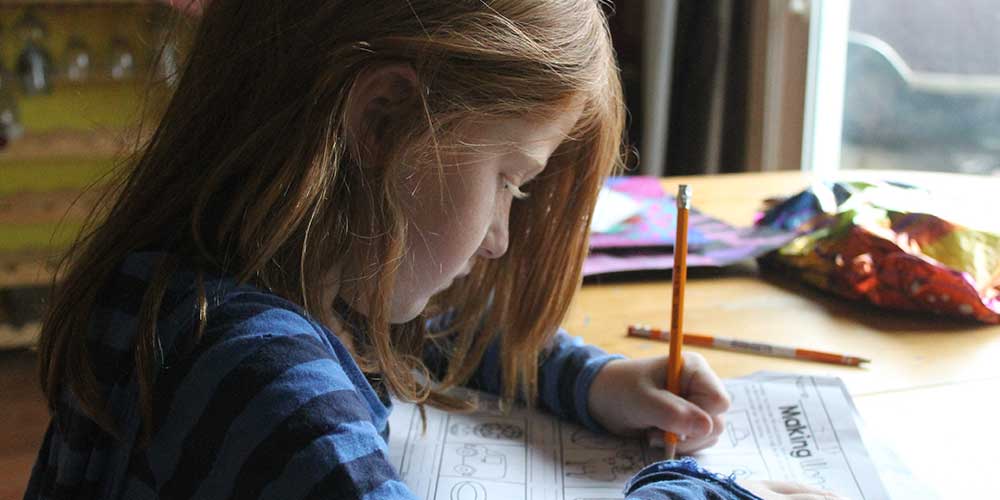
- What are the pros of homework in school?
- What are the cons of homework in school?
- How much homework do UK students get?
For decades (and even centuries, according to some anthropological evidence ), homework has been considered an essential part of formal education . It’s believed that it provides you with the opportunity to ‘learn by doing’ and test and apply what you’ve been taught during school hours.
However, some modern studies suggest that the practice of homework in schools might not be as helpful as we think it is. According to statistics on homework, homework over a certain level (the 10 minutes per grade standard) has been linked to excessive stress and disruption of personal and social habits in adolescents. It may surprise you to find out that the average amount of homework that kids from countries like the US, UK, France, and Germany currently get is above the standard limit . 😮
If you’re currently a student in the UK, you may be wondering whether homework actually does kids and teenagers any good. Keep reading to find out more about the pros and cons of homework.
What are the pros and cons of homework in school?
Pros: , homework encourages practice.
The primary purpose of homework in schools is to reinforce the habit of practising what you’ve learned in school. Some subjects like maths and languages require daily practice even outside of school hours for you to strengthen the fundamentals you’re learning.
Practising these subjects regularly from a relatively young age can help equip you for secondary school and college courses like economics and literature, which require a strong knowledge of the basics. Also, independent learning in your own time is a fantastic way for you to identify the subjects you’re most interested in – who knows, you may even find your preferred field of study at an early age through homework! 👍
It allows your parents to be actively involved in your
A healthy learning environment requires your parents to take an active interest in your education. Your parent or guardian helping you with your homework can help you gain a better understanding of what you’re learning and working on, since you’ll benefit from having anything you’re unsure of explained to you by someone other than your teacher at school.
Helping you with your homework also makes it possible for your parents to stay involved and keep track of your progress in school in a non-intrusive manner. Additionally, it fosters good communication as you’ll talk to your parents more about the classes you’re attending and other school-related activities that they should know about. ✔️
It’s a great lesson in time management
Homework in secondary school can be a great way for you to learn how to manage your time better. Older students are often actively involved in academics, sports , and several other extra-curricular activities that facilitate their all-round development.
Therefore, completing homework outside of school from an early age can help you learn beyond the classroom and gradually get used to managing your time and responsibilities well. ⏰
Homework research encourages independent critical thinking
Many schools are now opting for homework research as opposed to the traditional practice homework. In fact, it forms the very base of the flipped classroom structure where the students are given review materials before the class to grasp the concepts more quickly once they’re in school.
Homework research allows you to conduct your own research on a topic and form your own thoughts and opinions on what you’re learning. It encourages independent critical thinking from a young age, which is very beneficial for you. 💡
Not every child has a supportive enough home environment
While most kids in school might have a supportive and peaceful home environment that allows them to study, some children and teenagers aren’t that lucky. Difficult domestic environments can be extremely stressful for kids, which can make independent learning outside of school challenging.
It might be difficult for kids without strong support at home to muster up the time and concentration needed to do the kind of homework that requires independent research and critical thinking.
It adds to an already packed day
Homework in schools, especially secondary school, often adds to your already busy days. While time management is an important virtue to learn, homework in secondary school can feel nearly impossible to manage with all the extra-curricular tasks you’re expected to juggle. 😰
Stress related to school can have a negative impact on young people’s mental health . If you find yourself struggling with your workload at school, you should speak to your parent or caretaker, or bring it up with your teacher so that you can get some extra support to help you through it. It’s not unusual for kids and teens to sometimes feel overwhelmed in their learning journey, so don’t be afraid to reach out if you need help!
There’s no evidence that suggests the extra work produces better academic results for younger kids
A study conducted by the University of Michigan concluded that younger children (below 12 years of age) benefit more from activities such as reading for pleasure and not stipulated school homework. In fact, school homework might lessen the chances of a child reading or writing outside of school as a hobby.
Research suggests that in many cases, kids having too much homework assigned to them stunts their overall personality development.
How much homework do UK students get?
Research on homework shows that the average British school student spends around 3.5 hours on their homework per week. Of these, primary students spend 2.2 hours; secondary students spend 4.3 hours; and sixth form students spend 5.3 hours on homework per week on average. While these numbers aren’t worrisome, they are still over the standard limit prescribed by most child health bodies. ☝️
It’s important for children and young people to communicate with their caretakers if they find that their workload is excessive. If you find yourself getting worried or stressed out over school , we would recommend speaking to your parents or bringing it up with a teacher. The most important thing is your wellbeing, and you need to be able to cope with your homework and make academic progress without increasing your stress levels.
At GoStudent, we believe learning is a two-sided process that involves active participation from both students and tutors. We have thousands of top tutors available, so if you need any help with learning and homework, GoStudent may be just the ticket. Book a free trial lesson today to try us out!

Popular posts

- By Guy Doza

- By Akshat Biyani

- By Joseph McCrossan
- In LEARNING TRENDS
The 12 Best GCSE Revision Apps to Supercharge Your Revision

What are the Hardest GCSEs? Should You Avoid or Embrace Them?
- By Clarissa Joshua
More great reads:

Coffee: Helpful Study Tool or Dangerously Addictive?
- By GoStudent UK
- January 5, 2022

How to Create the Perfect Study Space for Your Child
- By Andrea Butler
- December 8, 2021

Summer Learning: How Can You Keep Children Motivated?
- By Natalie Lever
- July 28, 2021
Book a free trial session
Sign up for your free tutoring lesson..
- Economy & Politics ›
Industry-specific and extensively researched technical data (partially from exclusive partnerships). A paid subscription is required for full access.
- Average weekly hours of work for full-time homeworkers in the UK 2011-2020
Average weekly hours of work for full-time workers who mainly worked from home in the United Kingdom from 2011 to 2020
- Immediate access to 1m+ statistics
- Incl. source references
- Download as PNG, PDF, XLS, PPT
Additional Information
Show sources information Show publisher information Use Ask Statista Research Service
United Kingdom
2011 to 2020
16 years and older
Other statistics on the topic Remote working in the UK
- Percentage of people usually working from home in Europe 2022, by country
- Number of employees that work from home in the UK 1998-2020
- Percentage of employees who work from home in the UK 1998-2020
- Share of people working from home due to Coronavirus in Great Britain 2022, by age
To download this statistic in XLS format you need a Statista Account
To download this statistic in PNG format you need a Statista Account
To download this statistic in PDF format you need a Statista Account
To download this statistic in PPT format you need a Statista Account
As a Premium user you get access to the detailed source references and background information about this statistic.
As a Premium user you get access to background information and details about the release of this statistic.
As soon as this statistic is updated, you will immediately be notified via e-mail.
… to incorporate the statistic into your presentation at any time.
You need at least a Starter Account to use this feature.
- Immediate access to statistics, forecasts & reports
- Usage and publication rights
- Download in various formats
You only have access to basic statistics. This statistic is not included in your account.
- Instant access to 1m statistics
- Download in XLS, PDF & PNG format
- Detailed references
Business Solutions including all features.
Statistics on " Remote work in the UK "
- Working location trends in Great Britain 2020-2023
- Percentage of employed people that can work from home in the European Union 2002-2020
- Percentage of people sometimes working from home in Europe 2020, by country
- Percentage of employed people that can work from home in European countries 2008-2022
- Percentage of employees who work from home in the UK 2020, by gender
- Number of employees who work from home in the UK 2020, by age group
- Percentage of employees who work from home in the UK 2020, by age group
- Number of employees who work from home in the UK 2020, by region
- Percentage of employees who work from home in the UK 2020, by region
- Percentage of employees who work from home in the UK 2020, by ethnicity
- Percentage of employees who work from home in the UK 2020, by local authority
- Share of people working from home in the UK in 2020, by education level
- Number of employees that work from home in the UK 2020, by sector
- Percentage of employees that work from home in the UK 2020, by sector
- Number of employees who work from home in the UK 2020, by occupation
- Percentage of employees who work from home in the UK 2020, by occupation
- Number of employees who work from home in the UK 2020, by minor occupation group
- Percentage of employees who work from home in the UK 2020, by minor occupation group
- Home office working day pattern in the UK 2020
- Average weekly hours of work for part-time homeworkers in the UK 2011-2020
- Median gross weekly pay for homeworkers in the UK 2011-2020
- Median gross weekly pay for full-time homeworkers in the UK 2011-2020, by gender
- Sickness absence rate in the UK 2020, by work from home status
- Location of work at time of Coronavirus in Great Britain in July 2021
- Reasons for working from home in Coronavirus in Great Britain July 2021
- Likelihood of being allowed to work from home after Coronavirus Great Britain 2021
- Working from home situation before Coronavirus and preference afterwards Britain 2021
Other statistics that may interest you Remote work in the UK
- Basic Statistic Working location trends in Great Britain 2020-2023
- Premium Statistic Number of employees that work from home in the UK 1998-2020
- Premium Statistic Percentage of employees who work from home in the UK 1998-2020
- Premium Statistic Percentage of employed people that can work from home in the European Union 2002-2020
- Basic Statistic Percentage of people usually working from home in Europe 2022, by country
- Basic Statistic Percentage of people sometimes working from home in Europe 2020, by country
- Premium Statistic Percentage of employed people that can work from home in European countries 2008-2022
Demographics
- Premium Statistic Percentage of employees who work from home in the UK 2020, by gender
- Premium Statistic Number of employees who work from home in the UK 2020, by age group
- Premium Statistic Percentage of employees who work from home in the UK 2020, by age group
- Premium Statistic Number of employees who work from home in the UK 2020, by region
- Premium Statistic Percentage of employees who work from home in the UK 2020, by region
- Premium Statistic Percentage of employees who work from home in the UK 2020, by ethnicity
- Premium Statistic Percentage of employees who work from home in the UK 2020, by local authority
- Premium Statistic Share of people working from home in the UK in 2020, by education level
- Premium Statistic Number of employees that work from home in the UK 2020, by sector
- Premium Statistic Percentage of employees that work from home in the UK 2020, by sector
- Premium Statistic Number of employees who work from home in the UK 2020, by occupation
- Premium Statistic Percentage of employees who work from home in the UK 2020, by occupation
- Premium Statistic Number of employees who work from home in the UK 2020, by minor occupation group
- Premium Statistic Percentage of employees who work from home in the UK 2020, by minor occupation group
Hours and earnings
- Premium Statistic Home office working day pattern in the UK 2020
- Premium Statistic Average weekly hours of work for full-time homeworkers in the UK 2011-2020
- Premium Statistic Average weekly hours of work for part-time homeworkers in the UK 2011-2020
- Premium Statistic Median gross weekly pay for homeworkers in the UK 2011-2020
- Premium Statistic Median gross weekly pay for full-time homeworkers in the UK 2011-2020, by gender
- Premium Statistic Sickness absence rate in the UK 2020, by work from home status
Impact of COVID-19
- Premium Statistic Location of work at time of Coronavirus in Great Britain in July 2021
- Premium Statistic Reasons for working from home in Coronavirus in Great Britain July 2021
- Premium Statistic Share of people working from home due to Coronavirus in Great Britain 2022, by age
- Premium Statistic Likelihood of being allowed to work from home after Coronavirus Great Britain 2021
- Basic Statistic Working from home situation before Coronavirus and preference afterwards Britain 2021
Further related statistics
- Premium Statistic Reasons why people want remote work 2019
- Premium Statistic Share of teleworkers in the Netherlands 2021, by age group
- Premium Statistic Share of teleworkers in the Netherlands 2021, by industry
- Premium Statistic Access to telework in the United States by occupation group 2019
- Premium Statistic Italy: willingness to work from home in 2017
- Basic Statistic Opinion on the effect of working from home and productivity in Britain 2018
- Premium Statistic Share of enterprises where employees regularly telecommute in Sweden 2004-2020
- Premium Statistic Challenges to remote work 2020
- Premium Statistic Preferences for home office after pandemic in Canada 2021, by skill level
- Premium Statistic Hindrances faced by employees while working from home due to COVID-19 India 2020
- Premium Statistic Global expected level to work remotely 2021-2022
Further Content: You might find this interesting as well
- Reasons why people want remote work 2019
- Share of teleworkers in the Netherlands 2021, by age group
- Share of teleworkers in the Netherlands 2021, by industry
- Access to telework in the United States by occupation group 2019
- Italy: willingness to work from home in 2017
- Opinion on the effect of working from home and productivity in Britain 2018
- Share of enterprises where employees regularly telecommute in Sweden 2004-2020
- Challenges to remote work 2020
- Preferences for home office after pandemic in Canada 2021, by skill level
- Hindrances faced by employees while working from home due to COVID-19 India 2020
- Global expected level to work remotely 2021-2022
Is homework a good idea or not?
- Published 11 January 2017
This video can not be played
To play this video you need to enable JavaScript in your browser.
Homework debate: What's the issue?
Going to school - means lessons, assembly, seeing your friends and - for a lot of you - time to do homework!
While giving homework to pupils in secondary schools is generally seen as a good idea, some don't think that kids in primary schools should have to do it.
Need help with homework?
Help from Bitesize
What do you think of homework?
For the last 100 years or so, experts have been trying to work out if it is beneficial to give homework to kids in primary schools.
In the UK, the government says it's up to the head teacher to decide whether or not their school will set extra work like this.
Homework - are the rules changing?
Find out more about both sides of the argument with Newsround's guide, and then let us know what you think of doing homework when you're in primary school.
What is homework?
Homework: A timeline
- 1997: Just over 6 in every 10 primary schools made their pupils do homework
- 1998: Government publishes advice for schools in England and Wales about setting homework (e.g. pupils aged 5 to 7 should do 10 minutes of homework a night)
- 1999: Around 9 in 10 primary schools are setting homework
- 2012: Government gets rid of its guidelines, saying that schools should get to decide for themselves
Homework generally means work that is set by teachers for you to do outside of your normal school hours.
When you're younger, your parents might help you to do it.
But as you get older, you will generally take more responsibility for doing your homework on your own.
Professor Sue Hallam from the Institute of Education - who is one of the most experienced researchers into homework in the UK - says that in 1997, just over 6 in every 10 primary schools made their pupils do homework.
Just two years later, this had risen to around nine in ten primary schools and the majority still set homework now.
Many think that giving homework to primary school children is an important part of their learning.
They believe it helps them to practice what that they have learnt in lessons, in order to get better at things like spelling and handwriting.

They say it helps to teach children how to work on their own and be disciplined with themselves - both skills that are useful later in life.
It can also allow parents or guardians to get involved in their children's learning.
To find out more about why people think homework is a good idea, Jenny spoke to Chris from the campaign for Real Education, which is a group of teachers and parents who care about how well schools are doing.
Members of the organisation believe that traditional homework is important.
Chris told Newsround: "If you like learning, homework helps to support your learning. It's really important to go back afterwards and think about what you're learning in class. Practice makes perfect."
What are the arguments for homework?
"In parts of the world, children are doing much better in school than children in the UK. In most cases, they are doing much more homework.
"That doesn't mean you should be doing home work all the time.
"But a little bit of homework to support what you're doing in the classroom, involving your parents and guardians, is really good because it allows you to do as well as everybody else in the world."
Chris added that it is important to have a balance between homework and other activities.

"Homework shouldn't be overdone. Let's do some homework and some play."
Some people think that giving homework to children at primary school is not necessary.
They think it puts too much pressure on them and that the time spent doing homework could be used to do other activities.
Homework but not as you know it
Jenny also spoke to Nansi Ellis - assistant general secretary of one of the biggest teacher's unions in England, made up of teachers and heads - who doesn't believe that giving homework to primary school children is needed.
She told Newsround: "There is other good stuff you can do at home, like reading, playing sport or a musical instrument, or helping with the cooking, shopping or with your siblings. You might be a Guide or a Scout.
What are the arguments against homework?
"Those things are really helpful for you to learn to work in a team, to learn to be creative, to ask questions and to help other people. These are really important skills.
"The trouble with homework is that it gets in the way of all of those good things that you could be doing and it doesn't necessarily help you with your school work."
Sometimes parents or guardians try to help with homework and, if they have been taught differently, it can end up being confusing for the child doing the homework. They can also end up doing too much of the work themselves!

Nansi added: "Some children live in really busy houses with lots of people coming and going, and they don't have a quiet space to do homework, so they can't use it to help them to get better at studying on their own, which doesn't seem fair.
"Teachers set homework for you to get better at your learning - that seems like a really good reason. But actually, the evidence isn't clear that even that's true."
Another expert Rosamund McNeil, from a teachers' organisation called the NUT, said: "Pupils in Finland are assigned very little homework yet they remain one of the most educationally successful countries in the world."
People have been trying to find out if homework is a good thing or a bad thing for many years.
Recently, a report was done by an organisation called the Teaching Schools Council, which works with the government and schools in England.
It says: "Homework [in primary schools] should have a clear purpose."
Should primary schools set homework?
The report explains that if there isn't a clear reason for the homework and the pupils won't necessarily gain something from doing it, then it should not be set.
Dame Reena Keeble, an ex-primary school head teacher who led the report, told Newsround: "What we are saying in our report is that if schools are setting homework for you, they need to explain to you - and your mums and dads - why they're setting it, and your teachers need to let you know how you've done in your homework.

"We found homework can really help with your learning, as long as your school makes sure that what you're doing for your homework is making a difference."
Many people have different opinions. However, the truth is it's hard to know.
Professor Hallam explains that part of the problem is that it is difficult to accurately work out how useful homework is.
The Homework Debate: Adults face Newsround's children's panel
Generally, people agree that homework is good idea for children in secondary school.
But for primary school, it isn't clear if there's a right or wrong answer to this question.
Nearly 900 of you took part in an online vote about the amount of homework you get: whether it is not enough, just right or too much.
It's just a quick snapshot of what some of you think. Here's the results:

Comments: How would you change homework?
- Published 9 January 2017

Do you think you get set too much homework?
- Published 8 November 2016
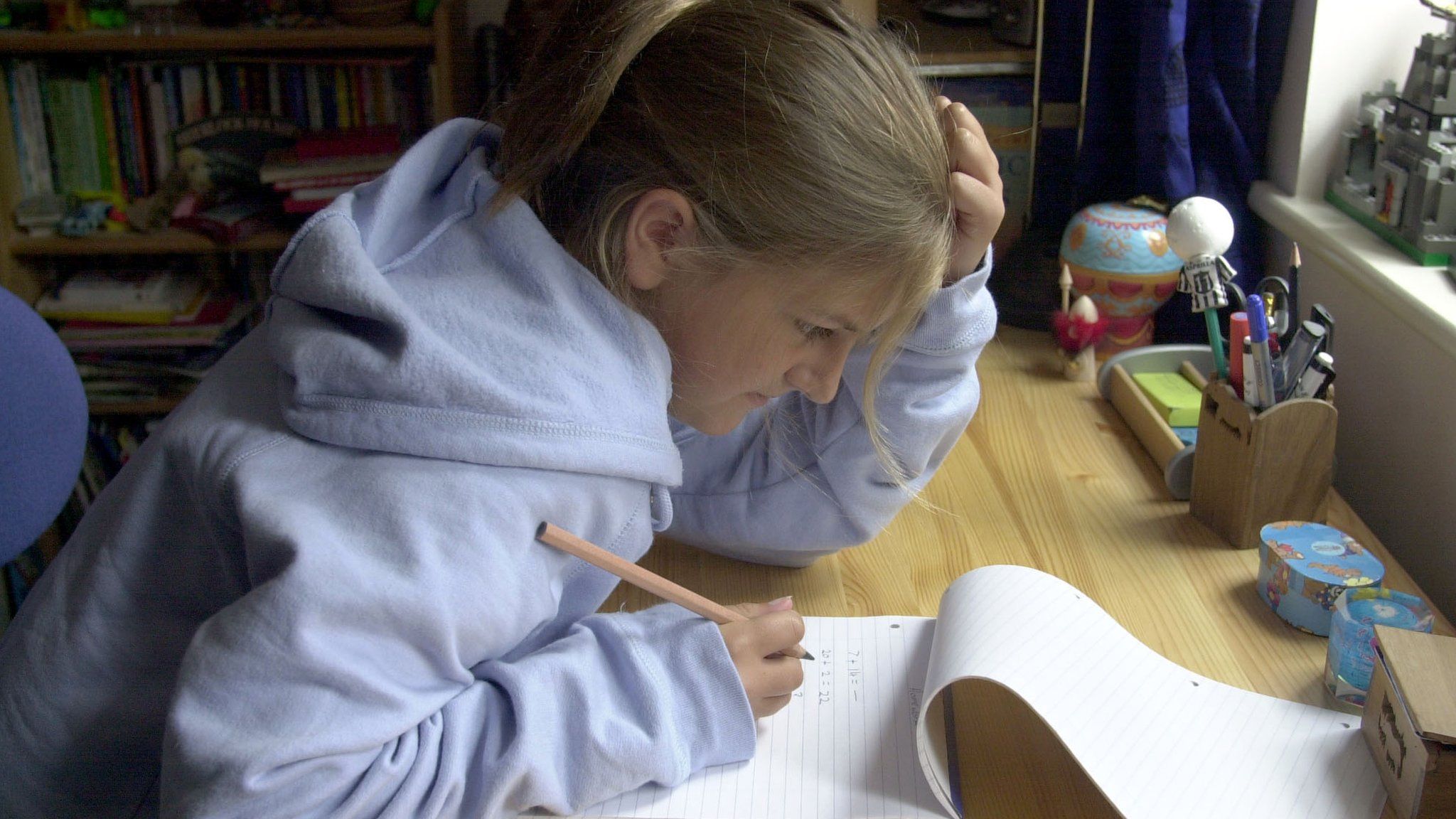
Should homework be done at school?
- Published 17 October 2012
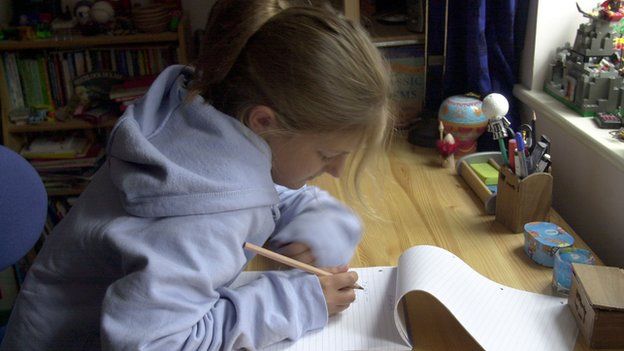
You are using an outdated browser. Please upgrade your browser to improve your experience.
Suggested Results
Antes de cambiar....
Esta página no está disponible en español
¿Le gustaría continuar en la página de inicio de Brennan Center en español?
al Brennan Center en inglés
al Brennan Center en español
Informed citizens are our democracy’s best defense.
We respect your privacy .
- Research & Reports
U.S. Crime Rates and Trends — Analysis of FBI Crime Statistics
The FBI’s latest report on crime trends includes 2022 data for national, regional, and local levels.
- Accurate Crime Data
This page lists key statistics from the latest annual crime report published by the Federal Bureau of Investigation. The report, published on October 16, 2023, includes data on crime at the national, state, and local levels for 2022 along with comparisons against previous years.
Historical Trends in Crime Rates, 1990–2022
Recent changes in crime rates by geography, 2020–2022, recent changes in crime rates in selected major cities, 2020–2022.
Methodology and Limitations
Except where indicated, all data above was drawn from Crime in the United States Annual Reports , available on the FBI’s website under “Documents and Downloads.” Terms used in the tables above, such as regional groupings, are drawn from FBI reports.
FBI crime data from 2021 contained significant gaps and was based largely on estimates due to a transition in the way agencies report crime to the bureau. The tables on this page exclude 2021 data accordingly, instead making a direct comparison between 2022 and 2020, which is the most recent prior year in which a comparable number of agencies participated. This year’s report includes data accepted through the FBI’s “legacy” reporting system , significantly improving the reliability of its estimates.
Related Resources

Myths and Realities: Understanding Recent Trends in Violent Crime
The recent rise in crime is extraordinarily complex. Policymakers and the public should not jump to conclusions or expect easy answers.
Understanding the FBI’s 2021 Crime Data

The Hidden Toll of New York City’s Misdemeanor System
Caseloads are shrinking but remain a burden on communities and government resources.

Myth vs. Reality: Trends in Retail Theft
Despite spikes in some cities, crime data doesn’t show a nationwide increase in shoplifting and other forms of retail theft.
Fact-Checking Trump’s Speech on Crime and Immigrants
Trump misleads about crime and public safety, again, criminal justice reforms aren’t driving rising crime, analyzing the fbi’s national crime data on 2022 — with an eye toward 2023 trends, crime trends in 2021–22: what we know so far, informed citizens are democracy’s best defense.
We've detected unusual activity from your computer network
To continue, please click the box below to let us know you're not a robot.
Why did this happen?
Please make sure your browser supports JavaScript and cookies and that you are not blocking them from loading. For more information you can review our Terms of Service and Cookie Policy .
For inquiries related to this message please contact our support team and provide the reference ID below.
Cookies on GOV.UK
We use some essential cookies to make this website work.
We’d like to set additional cookies to understand how you use GOV.UK, remember your settings and improve government services.
We also use cookies set by other sites to help us deliver content from their services.
You have accepted additional cookies. You can change your cookie settings at any time.
You have rejected additional cookies. You can change your cookie settings at any time.
- Business and industry
- Trade and investment
Business insights and impact on the UK economy: 21 March 2024
The impact of challenges facing the economy and other events on UK businesses. Based on responses from the voluntary fortnightly business survey (BICS).
https://www.ons.gov.uk/releases/businessinsightsandimpactontheukeconomy21march2024
Official statistics are produced impartially and free from political influence.
Is this page useful?
- Yes this page is useful
- No this page is not useful
Help us improve GOV.UK
Don’t include personal or financial information like your National Insurance number or credit card details.
To help us improve GOV.UK, we’d like to know more about your visit today. We’ll send you a link to a feedback form. It will take only 2 minutes to fill in. Don’t worry we won’t send you spam or share your email address with anyone.

IMAGES
COMMENTS
The decrease in the number of non-homeworkers (those who live and non-homework in the same region) and regional commuters (those who work in a region but live in a different region) varied across UK regions, the largest decreases were in London (30.1%, down 1.4 million), followed by the South East (21.8%, down 775,000), Scotland (21.2%, down ...
A big report for the Department for Education, published in 2014, concluded that students in Year 9 who spent between two and three hours on homework on an average week night were almost 10 times ...
Age and sex. Overall, 44% of workers reported home or hybrid working and 56% reported only travelling to work in the last seven days (September 2022 to January 2023). A higher rate reported hybrid working, with 28% reporting hybrid working and 16% reporting working from home only.
The proportion of working adults who did any work from home in 2020 increased to 37% on average from 27% in 2019 with workers living in London the most likely to homework. When asked about homeworking, working adults stated work-life balance was the greatest positive, while challenges of collaboration were the greatest negative.
When implementing homework, the evidence suggests a wide variation in impact. Therefore, schools should consider the ' active' ingredients to the approach, which may include: Considering the quality of homework over the quantity. Using well-designed tasks that are linked to classroom learning. Clearly setting out the aims of homework to pupils.
Content Team 2 years ago5 min. Statistics show from October to December 2019 and January to March 2022, homeworking in the UK has more than doubled from 4.7m to 9.9m people, according to the Office for National Statistics (ONS) Published in its ' Homeworking in the UK - regional patterns: 2019 to 2022 ' data-set, the ONS number-crunching ...
Characteristics of homeworkers, Great Britain: September 2022 to January 2023. This publication will answers the questions of who is more likely to be working from home across demographics using ...
In this report, Alan Felstead of Cardiff University and Darja Reuschke of the University of Southampton present new and up-to-date evidence on the scale of the shift of paid work into the home in the UK during lockdown, its impact on the mental well-being and productivity of homeworkers, and the likely prevalence of homeworking after social distancing restrictions are fully lifted.
How the ONS is working towards measuring depletion of UK natural capital; Bringing together UK health statistics; Micro:bits at the ready: Playground survey brings data science to schools across the UK; Excess deaths - a new methodology and better understanding; How the ONS is transforming its statistics for local areas
Data from the Office for National Statistics analysed homeworking levels between January and March 2022, and compared them to October to December 2019, before the Covid-19 pandemic began. Homeworking in the UK more than doubled, increasing from 14.5% of workers to 30.6%. Scotland saw the largest percentage increase in homeworking, the figure ...
The weekly average for the UK was about five hours - but, the OECD said, this was because the figures included young people who appeared to do almost no homework at all. The gap between the ...
A study of teenagers used by The Telegraph shows that American high-schoolers spend an average of 6.1 hours per week compared with 4.9 hours per week of homework each week for UK-based teens. Up until 2012, the Department of Education recommended an hour of homework a week for primary school Key Stage 1 children (aged 4 to 7) and half an hour a ...
The homework debate solution: Online tuition. It's engaging for children; it reflects what they have been learning in class and saves time for both parents and teachers. Online tuition has soared in popularity through 2020 and 2021, and could be the solution for people on both sides of the homework debate. Read more : How online maths tutors ...
Surprisingly, 4% of US teens say they do more than 6 hours of homework per night. That's almost as much homework as there are hours in the school day. The only activity that teens self-reported as doing more than homework was engaging in electronics, which included using phones, playing video games, and watching TV. 9.
Another complication, says Prof Hallam, is that the most able pupils probably need the least homework - but in practice, teachers give pupils in the top ability groups the most homework.
a collection of rural statistics on a wide range of social and economic government policy areas. ... The Labour Market Survey (UK level survey launched online at the end of March 2020) estimated that in April 2020, 46.6% of people in employment did some work at home. Further details can be found in the publication
According to statistics on homework, homework over a certain level (the 10 minutes per grade standard) has been linked to excessive stress and disruption of personal and social habits in adolescents. It may surprise you to find out that the average amount of homework that kids from countries like the US, UK, France, and Germany currently get is ...
Average weekly hours of work for full-time homeworkers in the UK 2011-2020. In 2020, employees who mainly worked from home worked an average of 35.9 hours a week, compared with the 40.26 hours ...
Research and statistics. Reports, analysis and official statistics. Policy papers and consultations. Consultations and strategy. Transparency. Data, Freedom of Information releases and corporate ...
Some factors affecting homeworking take-up across the UK, including broadband speeds, were explored in our Technology intensity and homeworking in the UK article. Figure 10 shows the proportion of workers in each NUTS 3 (Nomenclature of Territorial Units for Statistics) region who reported any homeworking in 2018, 2019 and 2020.
Analysis of working from home in the UK between 2011 and 2020, including the impact of the coronavirus (COVID-19) pandemic. Looking at indicators of productivity and work success such as pay ...
The Homework Debate: Adults face Newsround's children's panel. Generally, people agree that homework is good idea for children in secondary school. But for primary school, it isn't clear if there ...
This page lists key statistics from the latest annual crime report published by the Federal Bureau of Investigation. The report, published on October 16, 2023, includes data on crime at the national, state, and local levels for 2022 along with comparisons against previous years.
Early data on the UK economy and society. These faster indicators are created using rapid response surveys, novel data sources and innovative methods. These are official statistics in development.
These statistics have been produced to provide timely indicators of the effect of developing world events on the UK economy and society, using close-to-real-time big data, administrative data sources, rapid response surveys, or official statistics in development. The data presented in this bulletin are reviewed and refreshed on a regular basis.
More than 1,000 British civil servants at the Office for National Statistics are threatening to strike over demands that they return to the office at least two days a week.
The UK economic inactivity rate for those aged 16 to 64 years was 21.8%, above estimates of a year ago (November 2022 to January 2023),and increased in the latest quarter. The UK Claimant Count for February 2024 increased by 16,800 on the month and by 85,800 on the year to 1.585 million.
Quarterly statistics on people coming to the UK, extensions of stay, citizenship, asylum, detentions, and returns. Immigration system statistics, year ending December 2023 - GOV.UK Cookies on GOV.UK
Research and statistics. Reports, analysis and official statistics. Policy papers and consultations. Consultations and strategy. Transparency. Data, Freedom of Information releases and corporate ...